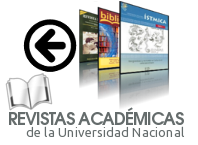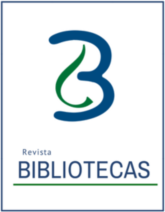New Paths in the Study of Happiness: An Experimental Analysis of Mexican Twitter Users
DOI:
https://doi.org/10.15359/rb.38-2.3Keywords:
Information, metadata, happiness, Twitter, MexicoAbstract
It is increasingly common to find alternative ways to measure a country’s development and wellbeing. One of these tools which has garnered increasing interest in specialized analysis and decision-making groups is measuring a population’s happiness. Meanwhile, the significant increase in digital tools for various uses, such as social networks, information gathering, social communication, opinion exchanges about public affairs and generation of public opinion, mean that these tools are very useful to understand multiple social phenomena. In this context, experimental analysis has been carried out in Mexico to try and understand the population’s emotional state using social networks as a source, and specifically, Twitter, using Twitter metadata. This article aims to provide a theoretical approximation of happiness studies to subsequently use in the specific case of measuring happiness in Twitter users in Mexico. The conclusions aim to highlight the viability and promising future of experimental measurements, in this case metadata, to analyses various aspects of social phenomena.
References
Arcila, C. (2006). El ciudadano digital. Revista Latinoamericana de Comunicación CHASQUI, (93), 18-21.
Asociación de Internet.mx. (2018). Estudio sobre los hábitos de los usuarios de Internet en México 2018. Recuperado de http://www.asociaciondeinternet.org.mx/es/component/remository/Habitos-de-Internet/lang,es-es/?Itemid=
Cleveland, W. (2007). Data Science: An Action Plan for Expanding the Technical Areas of the Field of Statistics. International Statistical Review, 69 (1), 21-26. https://doi.org/10.1111/j.1751-5823.2001.tb00477.x
Evans-Pritchard, E. (1937). Witchcraft, Oracles and Magic among the Azande. Oxford: Oxford University Press.
García-Canclini, N. (1995). Consumidores y ciudadanos. Ciudad de México: Grijalbo.
Granovetter, M. (1985). Economic Action and Social Structure: The Problem of Embeddedness. American Journal of Sociology, 91, 481-510.
Helliwell, J; Layard, R. y Sachs, J. (2018). World Happiness Report 2018. Nueva York: Sustainable Development Solutions Network.
Instituto Nacional de Estadística y Geografía. (2017). Estado de ánimo de los tuiteros en los Estados Unidos Mexicanos. Documento metodológico. Segunda edición. Recuperado de http://www.beta.inegi.org.mx/app/biblioteca/ficha.html?upc=702825099718
Jacobo-Herrera, F. (2013). Hacia una antropología de las emociones. La atención de la envidia entre los nahuas de Cuetzalan, Puebla. Doctorado, Ciudad de México: CIESAS.
Lechner, N. (2000). Nuevas Ciudadanías. Revista de estudios sociales, (5), 25-31.
Lutz, C. (1986). Emotion, Thought, and Estrangement: Emotion as a Cultural Category. Cultural Anthropology, 1 (3), 287-309.
Sen, A. (2000). Desarrollo y libertad. Buenos Aires: Planeta.
Solomon, R. (1984). Getting Angry: The Jamesian Theory of Emotion in Anthropology. En R. C. Solomon (ed.), Not Passion’s Slave, (1-23). Recuperado de Oxford: Oxford University Press. https://www.oxfordscholarship.com/view/10.1093/0195145496.001.0001/acprof-9780195145496-chapter-6
Stiglitz, J. (2003). Los felices 90: La semilla de la destrucción. Barcelona: Taurus.
Stordeur, E. (2014). Felicidad, bienestar y políticas públicas: algunas consideraciones preliminares. Revista Teoría del Derecho de la Universidad de Palermo, 1 (1), 83-114.
Transparency International. (2018). Corruption Perceptions Index 2017. Nueva York.
Winocur, R. (2003ª). Ciudadanos en los medios. La construcción de lo público en la radio. Buenos Aires: Gedisa.
Winocur, R. (2003b). La invención mediática de la ciudadanía. En P. Ramírez (Ed.) Espacio público y reconstrucción de ciudadanía, (231-252). México D.F.: Miguel Ángel Porrúa.
Downloads
Published
How to Cite
Issue
Section
License
Bibliotecas provide immediate open access to their content, based on the principle of facilitating research to the public free of charge and free of charge to promote the global exchange of knowledge.
The journal Bibliotecas is a publication hosted by a public higher education institution, which is supported by public resources. Since its inception, the magazine has offered all its contents free of charge without any restriction on the rights of: reading, downloading and printing in full text. Works published in libraries may be analyzed, quoted and reproduced in whole or in part, mentioning the original source.
The journal Bibliotecas is licensed under the Creative Commons Attribution - Non-Commercial - Share Equal, 4.0 International license; therefore, it is allowed to: share, copy and redistribute the material in any medium or format.

Este obra está bajo una licencia Creative Commons Atribución-NoComercial-CompartirIgual 4.0 Internacional.








